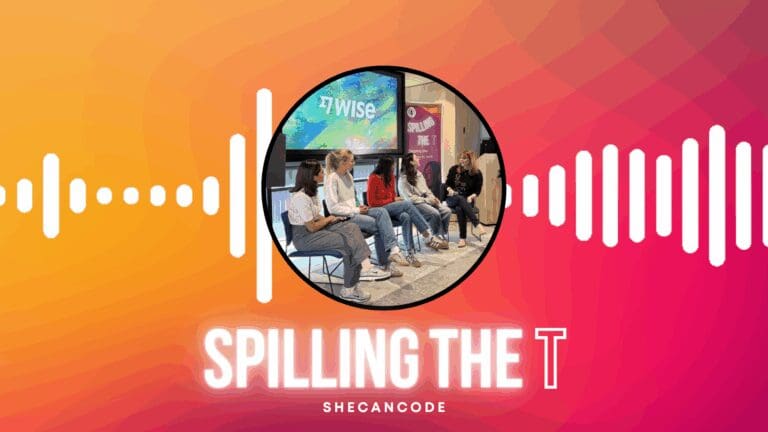IT IS PROBABLY NO SURPRISE THAT FREELANCING IS EMERGING AS AN INCREASINGLY ATTRACTIVE CAREER CHOICE FOR WOMEN IN TECH.
With the demand for tech experts continuously growing, more companies are engaging freelance workers as a critical part of their talent strategy. Additionally, recent research shows that 70% of young independent consultants believe that tech companies, known for agility and flexibility, will beat consulting firms in the fight to recruit talent, highlighting the relevance of best practices for women in hardware.

In this article, Charlotte Gregson, Country Head UK at Malt, discusses the growth in freelancing among tech women, the benefits it provides as well as advice on how to overcome the hurdles. Malt is a digital marketplace that matches business needs with independent talent and operates across the UK, Europe and the Middle East.
Charlotte is responsible for the international expansion of Malt in the UK encompassing all aspects of the business including commercial and sales operations, marketing, finance, HR, legal etc. Previously, she worked as a Managing Director at COMATCH, where she launched the London office in 2018. She has over 10+ years of experience leading talent marketplaces. She holds a PhD in Organometallic Chemistry from Imperial College London.
TECH FREELANCERS ARE IN DEMAND
While I’ve not taken the leap into freelance life myself, I’ve worked in the industry for over a decade and it’s fantastic to see more and more women with tech expertise choosing to move to freelancing and work on a variety of projects with businesses who seek their skills.
According to research, the skills currently most in demand are those held by writers, web designers, web developers and social media managers. But we are also seeing a clamour for expertise to address the digital skills shortage, including SEO consultants, software engineers and developers.
With the rise in generative artificial intelligence and other emerging technologies, we’re seeing an increase in freelancers with those skills. As of April this year, over 500 freelancers on our platform have listed GPT or broader Generative AI competencies. In addition to this, there are over 4,300 freelancers with deep learning competencies, which shows that while Generative AI is in its early days, the freelance community is embracing it and companies are in need of that expertise.
THE BENEFITS OF FREELANCING
Freelancing is no longer a stopgap that women in tech resort to while they look for their next permanent role. Instead, it’s a conscious career choice with significant advantages. Technology developments in recent years including access to platforms and applications in the cloud, and the boom of video conferencing during the pandemic, have made it easier than ever to work from anywhere and to onboard to new systems.
There are five key benefits that stand out when we talk to the women on our freelance digital platform:
1) Flexibility – Freelancing provides them with control over their schedule and while they are happy to mix remote working with being on-site, most importantly they have a choice. This flexibility is especially beneficial to women who still tend to have primary responsibility for dependents (be that children or ageing parents) and managing busy households, giving them an improved work-life balance and the ability to prioritise personal commitments without compromising their careers.
2) Increased earning potential – Freelancers can set their own rates and negotiate higher pay for their expertise. By leveraging their skills, women working in tech can potentially earn more as freelancers than they would in a permanent role, particularly since tech skills are in high demand. As a freelancer, you can work on multiple projects at once to boost your income stream.
3) Career development – Our data shows that freelancers on Malt spend an average of four hours every week developing their skills. But in addition, their exposure to different companies and a range of tech platforms and systems means they build new perspectives and are constantly developing their technical abilities.
4) Entrepreneurial freedom – Women who choose to freelance opt to make independent business and financial decisions. They can choose the projects they work on, the clients they collaborate with and the direction they take in their careers. This autonomy is empowering for women, allowing for greater professional growth and fulfilment.
5) Networking – Most of the freelancers on the Malt platform combine remote and in-office work which means they are interacting with clients and teams but also building strong professional connections. This opens the door to new projects, collaborations and referrals, enhancing a woman’s professional reputation and continually building her opportunities for finding rewarding work.
THE CHALLENGES OF FREELANCING
Of course, opting away from a regular salary and jumping into the world of freelancing doesn’t come without its challenges, and women who take that leap need a certain level of confidence to succeed.
Challenges that come, especially in the early stages of freelancing, include securing clients, negotiating fair rates and often, being taken seriously in a male-dominated industry, and dealing with the UK tax legislation that comes with being self-employed. Using a marketplace like Malt can help women to find projects, set the right rates, connect with other freelancers and manage the tax implications.
GETTING A GOOD START
For anyone out there considering making the move, it’s worth thinking about what projects and businesses are of most interest to you, deciding your working terms and doing some due diligence so you feel confident setting and negotiating your daily rate.








